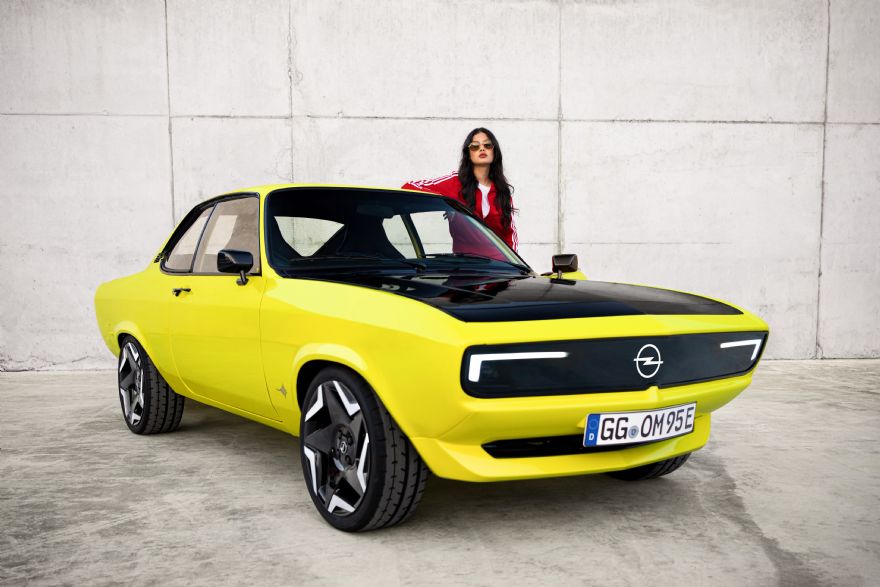 Vauxhall
Vauxhall, part of the multi-national automotive manufacturing corporation Stellantis, is opening the next chapter of its comprehensive electrification offensive: the British brand will focus entirely on full battery electric vehicles (BEVs) from 2028.
Paul Willcox, Vauxhall Motors managing director, said: “As of 2028, Vauxhall will only offer fully electric cars and vans in the UK. The future of the automotive industry is electric – and Vauxhall will lead that in this country. We are on a journey to reinvent Vauxhall and heading towards a net zero CO
2 future – CO
2 is the new currency in our industry.”
At the
Stellantis EV Day 2021, held online last week, it was announced that a new, all-electric car – a modern day version of the Opel Manta – will be introduced mid-decade following on from the positive public reception to the Manta GSe ElektroMOD Restomod concept in May (pictured above).
Today, Vauxhall offers nine electric or electrified cars and vans with the Corsa-e, Mokka-e, Grandland PHEV (Plug-in Hybrid), Combo-e, Combo-e Life, Vivaro-e, Vivaro-e Life and Movano-e.
In the first six months of this year, Corsa-e is the best-selling battery electric supermini and Vauxhall itself is the UK’s number one electric van manufacturer. With the introduction of the all-electric Combo-e and Movano-e LCVs, Vauxhall will offer fully electric vans across its range by the end of 2021. Including the car range, the entire Vauxhall portfolio will offer electrified versions by 2024 and then move to fully electric in 2028.
This move to being all-electric follows the announcement last week that the Ellesmere Port plant in Cheshire will become the first Stellantis plant to produce solely electric vehicles when the Combo-e LCV and passenger version (together with their partner vehicles) go into production at the historic site at the end of next year (reported on the
Machinery Market website
here).